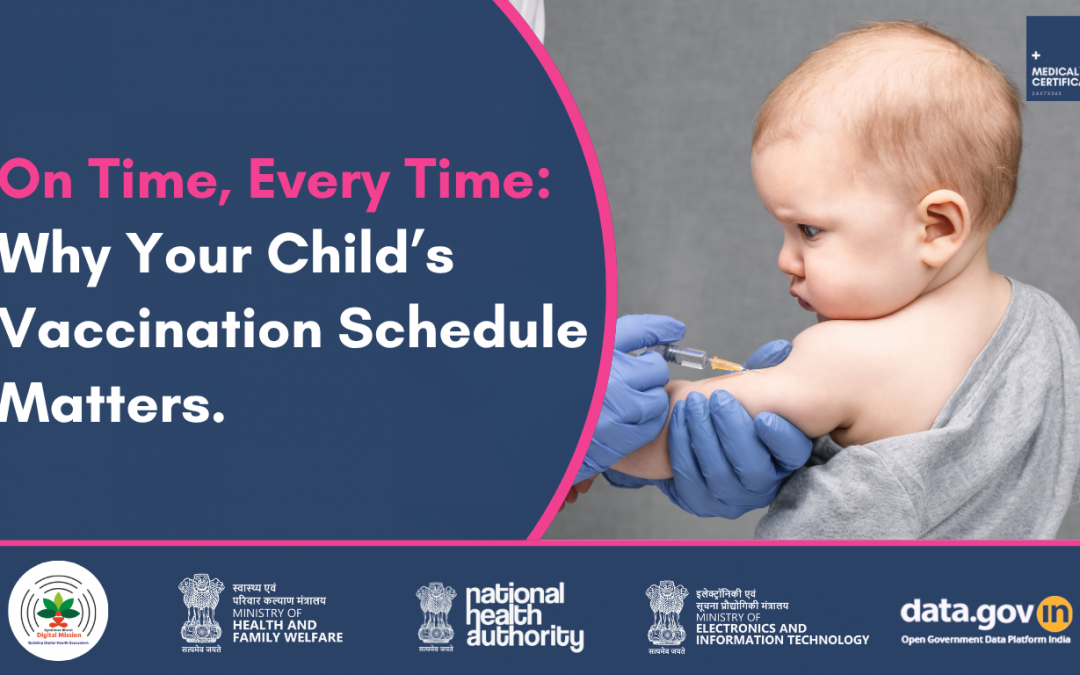Let’s be honest for a moment. No parent actually looks forward to vaccine day. You pack extra snacks in the diaper bag, bring along your child’s favorite stuffed toy, maybe cue up cartoons on your phone to soften the mood. But the minute that little needle comes out, the tears start flowing, and sometimes yours do too.
In those moments, when guilt and worry swirl together, it is so easy to lose sight of the bigger picture. Because for just a few seconds of discomfort, you are giving your child something truly powerful: protection that can last a lifetime.
Vaccines are not simply another task on the pediatrician’s checklist. They are more like careful investments placed inside your child’s growing body exactly when they are needed most. In a world where false information travels as quickly as any real virus, knowing why your child’s vaccination schedule matters so much has never been more important.
So let us explore it together, not through cold facts alone, but with empathy, understanding, and the honest reassurance every parent deserves.
Why Waiting or Delaying Shots Can Be Risky
This question comes up quietly in many parents’ minds. Perhaps your baby was unwell on the day of the appointment. Maybe the side effects after the last round of shots were a little scary. It can feel so reasonable to think, “I will just delay it by a week or two.”
But vaccination schedules are not chosen at random. They are built on careful science and the timing of how your child’s immune system develops. In the first years of life, a baby’s immune system is fresh and full of promise, but still learning how to protect the body from serious harm.
The schedule is designed to protect your child before they ever come into contact with dangerous illnesses like measles, polio, or diphtheria. It also ensures their immunity grows at the right stages, because many vaccines need more than one dose to fully work. As your child gets older, some protection naturally begins to fade, so booster shots step in to strengthen their defenses again.
Delaying even one vaccine opens up a period where your child is more vulnerable than they need to be. In that time, a simple playdate, a crowded mall, or even a family wedding could introduce germs their body is not yet ready to fight.
But My Child Seems So Healthy. Why All These Vaccines?
It feels like a strange irony. Vaccines have done their job so well that many of us have forgotten why we needed them in the first place. Serious diseases like measles, polio, and whooping cough seem almost like stories from the past. But they did not disappear on their own. We reduced them through decades of widespread vaccination.
The moment vaccination rates start to slip, these diseases come right back. In 2019, even as the world braced for COVID-19, measles was already spreading across multiple countries, claiming the lives of over two hundred thousand people, most of them children who had not received routine vaccines.
Your child might look perfectly healthy on the outside. But immunity is invisible. It is quietly built up, dose by dose, like a hidden suit of armor that protects them long before you can see any signs of illness.
What If I Miss a Vaccine Appointment?
If you have missed a shot, take a deep breath. You do not need to panic, but you do need to act. Life happens. Children get sick, families move to new cities, schedules slip through the cracks. The good news is that your child’s doctor can create a catch-up plan to safely fill any gaps in protection.
The only hard truth is that none of us can predict when or where a child might be exposed to a harmful virus or bacteria. That is why staying as close to the recommended schedule as possible matters so much. It is less about being flawless and more about staying consistent.
Coping With the Emotions of Vaccine Visits
Here is something few people openly admit. Watching your child get vaccinated can be just as hard for you as it is for them. The moment that needle touches their skin and the crying starts, your heart can feel like it is breaking. You may wonder for a split second if it is really worth it.
But keep this in mind. That single moment of pain now might save your child from nights in a hospital bed later or protect them from serious problems years down the road.
There are also gentle ways to make these visits easier. Try holding your baby skin-to-skin during the shot or feeding them right afterward so they instantly feel safe again. With toddlers, use distraction by singing a song or playing a quick counting game. Afterward, celebrate the bravery. Give them a sticker, a treat, or a big hug so they start to connect vaccines with love and comfort.
And remember, it is perfectly normal to feel shaken. It is also perfectly right to feel proud. You just helped your child build lifelong protection.
Understanding the So-Called Optional Vaccines
Many parents get confused when the vaccine chart shows a section labeled optional. Does optional mean unnecessary?
Vaccines like Rotavirus, Pneumococcal, Hepatitis A, Influenza, and HPV for teens are not on the free government list, but pediatric associations strongly recommend them. These illnesses can cause very serious complications, especially in children under five.
If your family can afford it or if you have access through private healthcare, these vaccines are worth considering. Do not hesitate to ask your pediatrician for guidance. The more questions you ask, the more informed your decisions will be. Just because something is not on the mandatory list does not mean it is not important.
Vaccination Protects More Than Just Your Child
One of the most overlooked facts about vaccines is that they are not only about your child. Some babies and children cannot be vaccinated because of certain health conditions. They rely on everyone else to build a protective circle around them, what doctors call herd immunity.
When you vaccinate your child, you are also protecting someone else’s newborn, someone else’s immune-compromised child, someone else’s family. It is a quiet act of compassion that truly saves lives.
Simple Ways to Stay on Track as a Parent
Put the vaccine schedule somewhere you will see it daily. Mark it on your kitchen calendar, set reminders on your phone, or tape it to the fridge. Keep your child’s vaccination card safe and up to date.
Ask questions, no matter how small they seem. When it comes to your child’s health, there is no such thing as a silly question.
And be mindful of where you get your information. Social media groups and forwarded messages often spread false claims that can put children at risk. Stick with trusted sources and healthcare professionals.
Final Thought: This Is a Powerful Act of Love
Vaccination days are not easy. They come with needles, tears, fevers, and restless nights. Sometimes they even come with guilt. But parenting is not only about the warm, cuddly moments. Sometimes it is about being the steady hands that hold a baby in place, even when it hurts, because you know it must be done.
Getting your child vaccinated is not glamorous. It does not earn applause or likes on social media. But it is one of the strongest gifts you can give them. You are offering protection, freedom, and a fighting chance before life ever throws its first challenge their way.
So when the next vaccine day comes, take a deep breath. You are not just ticking off a box on a medical form. You are building a future where your child can grow, explore, and thrive safely. And that makes you the best kind of hero there is.

